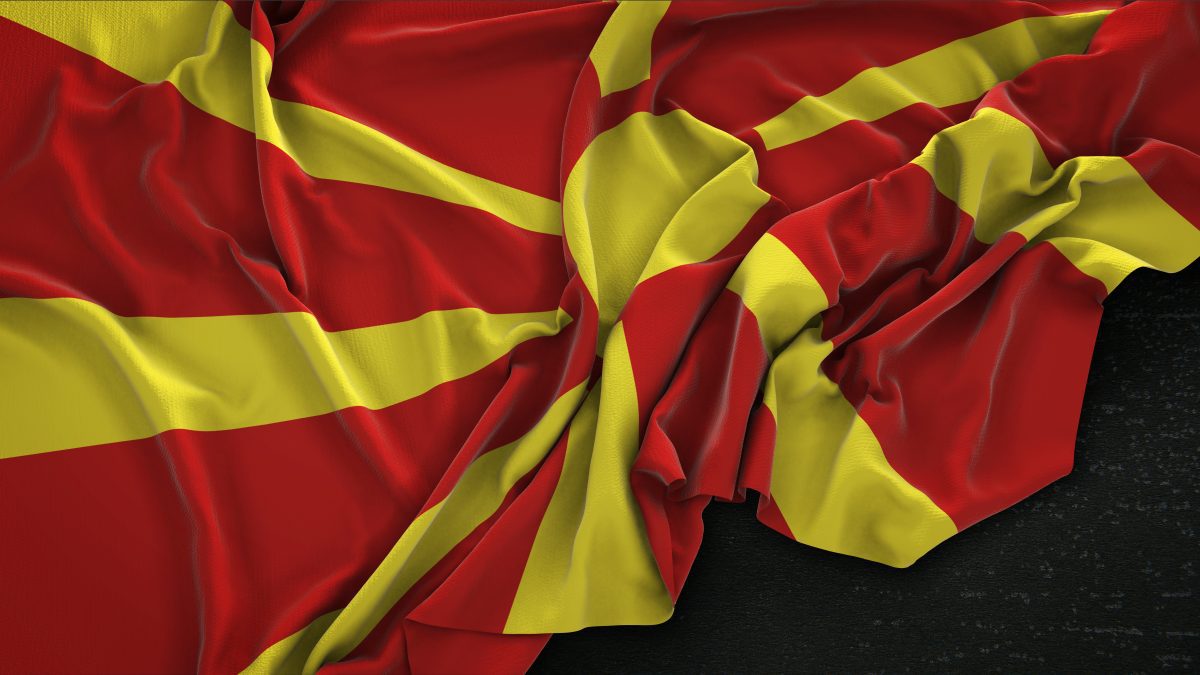IDU member VMRO-DPMNE leading the polls in the Republic of North Macedonia, expected to win the next elections


Republic of Macedonia Flag Wrinkled On Dark Background 3D Render
The Social Democrats (SDSM) have run the Macedonian Government for 7 years, since 2017. It is a complicated and ineffective coalition of many political parties and a slim parliamentary majority. It has only 62 safe MPs from many parties, out of the 120 seats in the Parliament.
The lack of support in the Parliament and the general public for the ruling SDSM has led to their refusal to call early elections. The IDU member VMRO-DPMNE has repeatedly asked for early elections, but the ruling coalition is trying to run their term all the way to the very last day possible.
The main reason is the opinion polls. The centre-right VMRO-DPMNE holds a decisive lead, close to 2 to 1, over to the former communist SDSM. All the opinion polls in the country are giving clear and consistent advantage to VMRO-DPMNE.
For example, the latest opinion poll by the International Republican Institute (IRI) from May 2023 gives VMRO-DPMNE 19%, and the ruling SDSM 11%.
Only 14% of the respondents think that Macedonia is moving in the right direction, the worst result in the last 13 years. 56% think that the country is going the wrong direction.
VMRO-DPMNE won the last local elections in October 2021, electing 46 mayors including in the biggest municipalities and major cities in Macedonia, compared to 16 from SDSM. Additionally, VMRO-DPMNE supported opposition candidates from ethnic Albanian parties won in several major cities, bringing a clear victory for the opposition.
Suffering a huge defeat during the local elections, the sitting Prime Minister Zoran Zaev resigned, both as PM and as leader of the Social Democrats in the middle of his term, tainted by several big corruption scandals.
Zaev proposed and supported Zoran Kovachevski, a largely anonymous candidate, for the president of SDSM and consequently as Prime Minister. That brought doubts about Kovachevski’s democratic legitimacy.
The current SDSM Prime Minister was not voted on and elected by the people, but he was appointed by his controversial predecessor Zaev. He has never held an elected office, and the vast majority of the general public first heard his name after he was proposed as PM by Zaev.
The Kovachevski Government has proved vastly ineffective. It has not been able to control inflation. The Macedonian currency “denar” is tied to the Euro, but due to the Government’s mistakes and populist measures, the country had an inflation rate of 13.6% in the first half of 2023, twice higher than that of the Eurozone. The GDP growth was only 1.6% in the first six months of 2023.
People are massively leaving Macedonia, especially the young and talented. The number of kids enrolled in the schools reached all time low in 2023, mostly due to emigration to Germany, Austria, Scandinavia, US, Canada, and the other Western countries.
The Government has had several big corruption scandals, where the public reacted very strongly. The scandals were related to road construction, public health and medicine, gang murders, passports for mafia members with fake names, public safety, electricity imports, unsafe bus transport, Covid spending, marijuana licences, nepotism etc.
Some of these large scandals resulted in big tragedies with casualties, such as the burning of a temporary plastic Covid hospital container, without any fireproof measures, which led to 14 people burning alive. Also, there were the 45 people killed in a bus fire that happened in a vehicle that didn’t have the required permissions and papers, yet the bus had been passing through the borders.
None of these scandals resulted in any resignations from the ministers. There was a lot of outrage and tension from the public, many calls for resignations and accountability, but no reaction by the institutions.
The prosecutor’s office and the judiciary are strongly under the control of the SDSM and their coalition partners, resulting in a culture of impunity and bad practices. All this resulted in a massive drop of support for the ruling parties.
On top of that, it seems that the debate is not settled within the EU about the next enlargement. No one in the EU can say with certainty when the countries from south-eastern Europe will join the EU. In the past, several years for expanding membership were mentioned, but the time has passed, and the Western Balkans EU enlargement has not happened. Probably more will be known after the next European elections in May 2024, followed by the outlook and program of the new European Commission (2024–2029).
Meanwhile, VMRO-DPMNE is preparing for the new parliamentary elections in the first half of 2024. The party is well positioned to win the next elections and form the Government. The leader of VMRO-DPMNE, Hristijan Mickoski, has a clear edge in all opinion polls over the current Prime Minister Dimitar Kovachevski.
Mickoski is the opposition candidate for Prime Minister and he is expected to win, especially after the strong victory during the local elections in 2021. He has been president of VMRO-DPMNE since 2017, serving earlier as Secretary General of the party.
He is also professor at Mechanics faculty in Skopje, teaching machine systems, kinetics, robotics etc. Mickoski was CEO of the state-owned Macedonian power plants, the largest energy producer in the country, giving him competencies in the fields of energy and economics.
The main focus of the VMRO-DPMNE led Government will be the economy, bringing in new investors, fighting against corruption, as well as better public services. The voters will have their say the upcoming months.